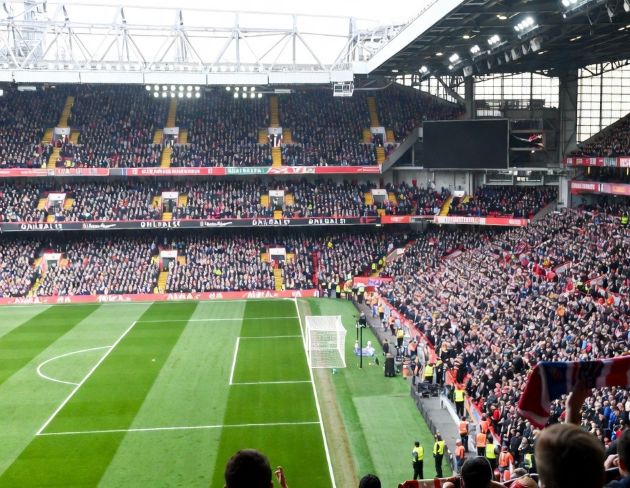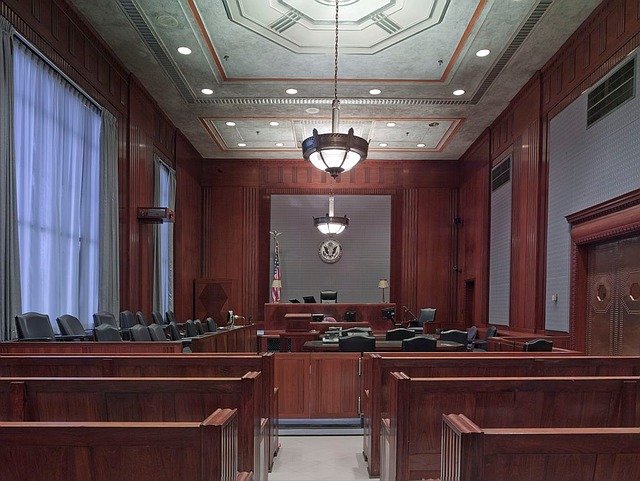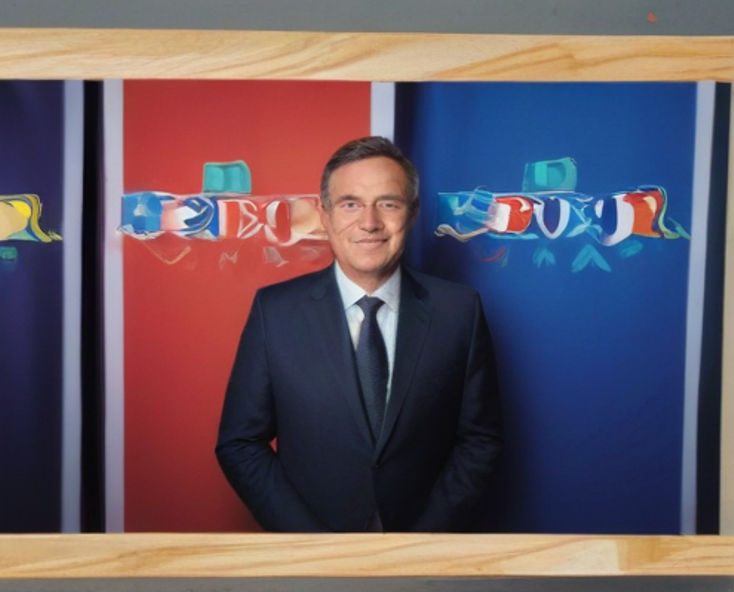
Premier League matches are among the most watched sporting events in the world, with billions tuning in each season through licensed broadcasters and digital platforms. Yet alongside official broadcasts, a parallel network of free streams has grown in popularity, raising complex legal and ethical questions for fans, regulators, and rights holders.
One of the better-known names in this space is Royal TV (로얄티비), a site many soccer fans discover while searching for free live coverage. For viewers eager to catch their favorite teams without subscription fees, sites like this seem appealing. However, the legal status of these streams is often unclear or contested, leading to a broader debate about what constitutes lawful access to sports content in an increasingly digital age.
Legal vs. Unauthorized Broadcast: What’s the Difference?
At its core, legal sports broadcasting revolves around carefully negotiated rights agreements. Leagues such as the English Premier League (EPL) sell exclusive rights to television networks and streaming services in different territories. These deals can be worth billions of dollars and are central to how the sport is financed and produced. Rights holders then deliver broadcasts with high-quality video, commentary, and official data feeds.
Unauthorized streams, by contrast, are not licensed by the rights holder. They often capture live match feeds from official sources or replay footage, then redistribute them over the internet without permission. These streams can be low quality, unstable, and may carry malware or intrusive ads, which present risks to users. More importantly, they bypass the commercial agreements that fund clubs, leagues, and broadcast infrastructure.
Legally speaking, streaming or sharing copyrighted content without permission is prohibited in many jurisdictions. In the United Kingdom, for example, the Copyright, Designs and Patents Act protects broadcast rights, and enforcement agencies have successfully shut down sites that repeatedly offer unauthorized sports streams. The EPL and other leagues employ dedicated teams to monitor infringement and work with internet service providers, payment processors, and law enforcement to block or dismantle illegal operations.
How Enforcement Works Across Borders
One of the biggest challenges in regulating unauthorized streams is the global nature of the internet. A site based in one country can be easily accessed in another, and local laws may differ significantly. For instance, a platform that operates with minimal oversight in one part of the world might face immediate takedown orders in another. This patchwork of legal frameworks makes consistent enforcement difficult.
Rights holders often use a mix of legal and technical strategies. Lawsuits against site operators are common when identities and locations are known. In other cases, rights holders pursue injunctions against domain registrars or payment processors to cut revenue and disrupt services. Courts in several countries have also ordered internet service providers to block access to notorious streaming sites. These measures can be effective, but they are not foolproof, as mirrors and proxies can re-emerge quickly.
Political Stances on Digital Piracy
Governments are increasingly involved in shaping how digital content is regulated. Some nations have tightened laws to impose stricter penalties on online piracy, including fines and possible criminal charges. Others emphasize education and awareness campaigns aimed at changing consumer behavior, rather than focusing solely on punitive measures.
Debates often extend to broader questions about access and affordability. Supporters of more flexible digital rights argue that high subscription costs limit access for many fans, especially in regions with lower income levels. They contend that strict enforcement may unfairly penalize consumers who lack affordable legal options. Critics point out that this perspective overlooks the real costs of producing and distributing sports content, and that unauthorized streams undermine the economic ecosystem that sustains professional leagues.
Some policymakers have explored alternative approaches, such as encouraging rights holders to offer more tiered or affordable access models. Others have experimented with graduated response systems, where repeat infringers receive warnings or temporary restrictions before severe penalties are applied. The goal in all cases is to balance protection of intellectual property with fair access for consumers.
Role of Technology in Shaping the Future
Advances in technology offer both challenges and opportunities. On one hand, decentralized and encrypted streaming tools can make it harder for authorities to track unauthorized broadcasts. On the other hand, technologies like blockchain and digital watermarking provide new ways to trace and authenticate legitimate streams. Major sports leagues and broadcasters are investing in such innovations to secure their content and enhance the viewer experience.
For readers interested in how historical sports spaces have their own fascinating stories tied to culture and community, explore the surprising history of a famous sports venue that has become part of athletic lore.
Artificial intelligence and machine learning are also being used to scan the web for unauthorized streams in real time, enabling faster takedowns. These tools can identify copyrighted material even when it is disguised or embedded within larger data streams. As technology evolves, the tug of war between enforcement and evasion is likely to continue, with each side adapting to the other’s innovations.
Conclusion: Towards Smarter Regulation and Better Access
The legal debate around unauthorized sports streams is far from settled. Fans who seek out free coverage are often motivated by cost or convenience. Yet accessing or promoting unauthorized feeds like Royal TV comes with legal and ethical risks. Rights holders, policymakers, and technology providers must work together to create a more balanced landscape, where digital media rights are protected, and fans have fair, affordable access to the content they love.
As regulation evolves and new distribution models emerge, the goal should be to support a vibrant, sustainable sports media ecosystem. This means enforcing copyright where necessary, offering consumer-friendly legal alternatives, and fostering innovation that benefits both creators and audiences.


 More than three billion people play video games today, and millions of them trade digital items that carry real-world value. Swords, armor, skins, and currency move daily between players, often for cash. Yet ownership of these virtual goods remains unclear. Players feel they own what they earn or buy, while publishers say everything exists under a license.
More than three billion people play video games today, and millions of them trade digital items that carry real-world value. Swords, armor, skins, and currency move daily between players, often for cash. Yet ownership of these virtual goods remains unclear. Players feel they own what they earn or buy, while publishers say everything exists under a license.
 As remote work continues to grow, many countries are now offering “digital nomad visas.” These visas allow remote workers to live abroad while working for foreign companies. Italian digital nomad visa program is a new path for professionals who want to travel without breaking immigration laws. But behind this trend are serious legal and political decisions that shape who can apply, how long they can stay, and what rights they have.
As remote work continues to grow, many countries are now offering “digital nomad visas.” These visas allow remote workers to live abroad while working for foreign companies. Italian digital nomad visa program is a new path for professionals who want to travel without breaking immigration laws. But behind this trend are serious legal and political decisions that shape who can apply, how long they can stay, and what rights they have. Modern chandeliers are often built with energy-efficient elements as growing concerns about energy conservation call for. These capabilities can call for motion sensors, dimmable controls, and LED illumination. It is noteworthy, nonetheless, that not every modern chandelier is made equally in terms of energy economy. Customers should investigate and select chandeliers that satisfy their objectives for energy savings.
Modern chandeliers are often built with energy-efficient elements as growing concerns about energy conservation call for. These capabilities can call for motion sensors, dimmable controls, and LED illumination. It is noteworthy, nonetheless, that not every modern chandelier is made equally in terms of energy economy. Customers should investigate and select chandeliers that satisfy their objectives for energy savings.

 When cars park illegally in a private property, there are federal and local laws that serve as guidelines in regulating the acts of towing san jose
When cars park illegally in a private property, there are federal and local laws that serve as guidelines in regulating the acts of towing san jose  back on the road. According to Ms. Murray some tow companies have been abusing their authority to tow illegally parked vehicles.
back on the road. According to Ms. Murray some tow companies have been abusing their authority to tow illegally parked vehicles.




 A whole lot to ameliorate the prevalence of a candidate to the general public will be availed by a prosperous effort. You need to access all techniques to market your self. As it can attain a huge array of individuals, flyers are great for campaigns, whether it be for a political purpose or small business campaigns. This had been proven timeless as noted by a local business in carpet cleaning Port Charlotte.
A whole lot to ameliorate the prevalence of a candidate to the general public will be availed by a prosperous effort. You need to access all techniques to market your self. As it can attain a huge array of individuals, flyers are great for campaigns, whether it be for a political purpose or small business campaigns. This had been proven timeless as noted by a local business in carpet cleaning Port Charlotte.


 Making familiar content like day-in-the-life movies, behind-the-scenes peeks, or policy explainer reels is a great way to get people to interact with you.
Making familiar content like day-in-the-life movies, behind-the-scenes peeks, or policy explainer reels is a great way to get people to interact with you.






 The world is facing lots of social and environmental issues, and it can feel overwhelming to consider how to make a difference. Nevertheless, it’s essential for us all to recognize our part in helping resolve them. That’s why it’s important to
The world is facing lots of social and environmental issues, and it can feel overwhelming to consider how to make a difference. Nevertheless, it’s essential for us all to recognize our part in helping resolve them. That’s why it’s important to 



 Many believe that it takes a special kind of person to be wholly interested in being at the frontline of political activities in today’s political realm. Yet if you are not that person but have desires to take part in the process of formulating
Many believe that it takes a special kind of person to be wholly interested in being at the frontline of political activities in today’s political realm. Yet if you are not that person but have desires to take part in the process of formulating  The best examples of the outputs of a statistician in the field of politics are the political polls or surveys conducted by statisticians. Their goal is to determine realistic numbers they can use in estimating the probability or possibility of different social and political trends. That way, proactive and preventive measures may be proposed as legislative matters.
The best examples of the outputs of a statistician in the field of politics are the political polls or surveys conducted by statisticians. Their goal is to determine realistic numbers they can use in estimating the probability or possibility of different social and political trends. That way, proactive and preventive measures may be proposed as legislative matters.
 What Does Gambling Have to do with Politics?
What Does Gambling Have to do with Politics? As soon as your baby is two or three weeks old, they start to learn how to remember things. As soon as a baby is two or three weeks old, they will remember your smell.
As soon as your baby is two or three weeks old, they start to learn how to remember things. As soon as a baby is two or three weeks old, they will remember your smell.
